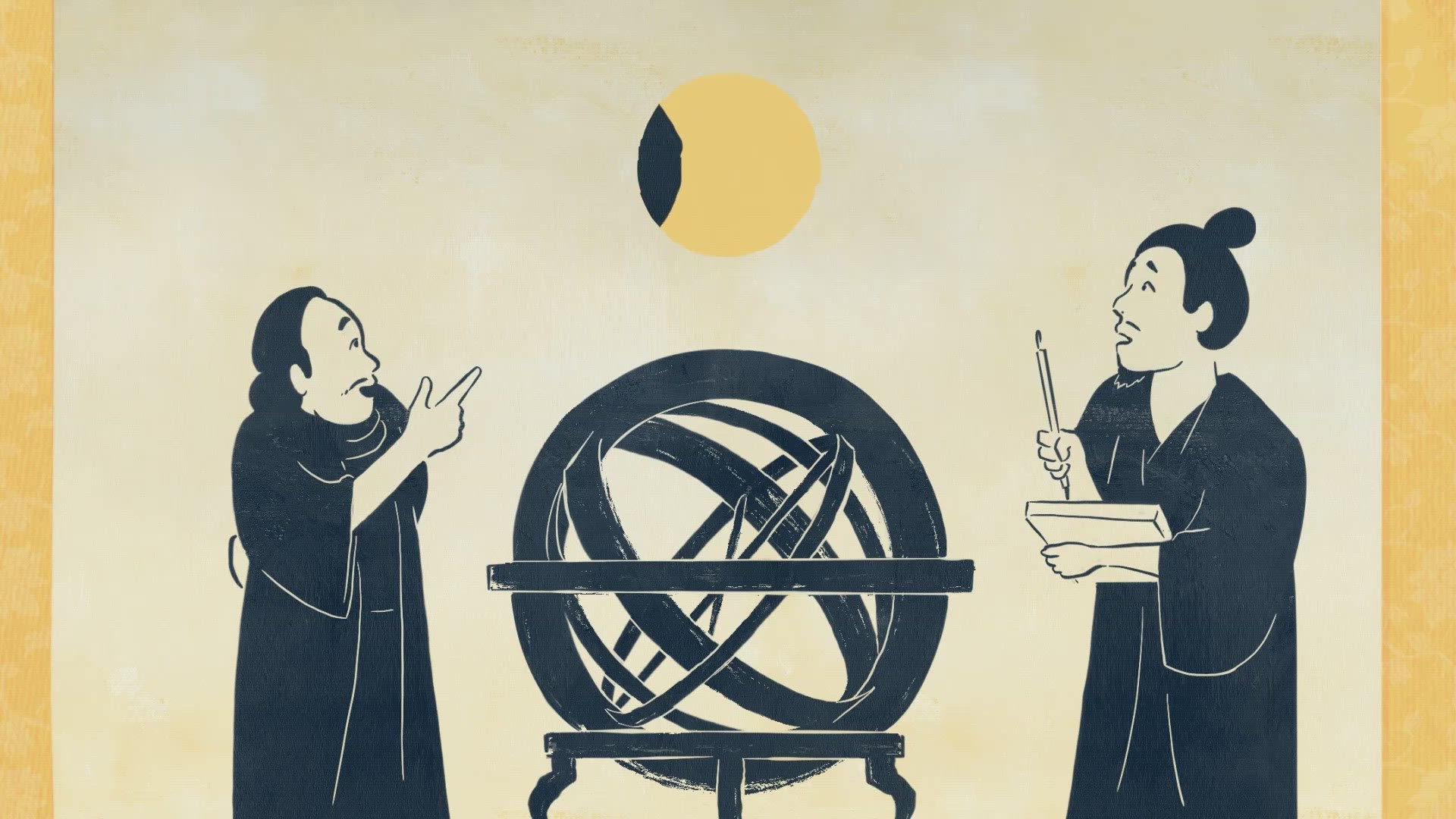LOUISVILLE, Ky. — How did ancient cultures understand solar eclipses?
Before modern science had a true understanding of what a solar eclipse is and how they work, ancient cultures had to form their own beliefs over what happened during this brief, but awesome, event. Here are how some of them viewed the eclipse, and how they tried to save the world.
Ancient Greece
The ancient Greeks had a thorough understanding of astronomy during their time. As far back as the 5th century BCE the Greeks were studying eclipses and even attempting to predict them. The Greek philosopher Thales correctly predicted a solar eclipse to occur on May 28, 525 BCE; something that made him famous even back then.
That day was particularly historic as the eclipse was a catalyst for peace talks between the Lydians and Medes who had been at war with each other.
Claudius Ptolemy, who lived from 87 to 150 CE, studied the lunar orbit so closely that he created a complex system of predicting both lunar and solar eclipses.
Ancient Islam
The Islamic world became the forefront of astronomy research in the 9th and 10th centuries. The work of the Greeks centuries earlier spread like wildfire and encouraged research of the stars.
Eclipses played a significant role in their religion, too. In the 7th century, an eclipse occurred on Jan. 27, 632. The Prophet Muhammad was alive during this time, and the eclipse happened to coincide with the death of his son Ibrahim.
While many cultures at the time feared the eclipse of the sun and moon, Muhammad said instead that there were wonders to be admired, not feared, and proved the might and power of Allah the Great.
Ancient China
Ancient Chinese culture saw the eclipses of sun and moon as very serious affairs. In Chinese mythos, a celestial dragon swallowed the sun and moon during an eclipse. To scare away the sun and moon eating dragon, people would bang on loud drums to scare the dragon away and restore order to the universe.
RELATED: GUIDE: April’s total solar eclipse is nearly here. What to know if you live in Kentucky, Indiana
Chinese studies of eclipses date as far back as the 2600s, BCE. In this time, astronomers had a very important job of predicting eclipses as they were consider omens for the future of the emperor. This was a job that ended poorly for two astronomers around 2300 BC when Emperor Zhang Kong had them beheaded for failing to predict an eclipse.
As the centuries passed, the mythos behind eclipses faded. By around 20 BCE, ancient Chinese astrologers had a much better understanding of how eclipses operated, and just over a decade later, the first future predictions were being made.
Ancient Babylon and Sumeria
Mesopotamia – considered to be the first civilization – made invaluable contributions to ancient astronomy. The ancient Babylonians kept careful, detailed records of the night sky. In fact, we know the exact date of at least three solar eclipses that occurred in the second and first millenniums BCE.
The 233 month lunar eclipse period was first discovered by the Babylonians. They placed great importance on these events when it pertained to the king.
Rasil the Older, a Babylonian Scribe to the King, said this regarding the solar eclipse of May 27, 669 BCE: “If the sun at its rising is like a crescent and wears a crown like the moon: the king will capture his enemy's land: evil will leave the land, and (the land) will experience good.”
Make it easy to keep up-to-date with more stories like this. Download the WHAS11 News app now. For Apple or Android users.
Have a news tip? Email assign@whas11.com, visit our Facebook page or Twitter feed.

